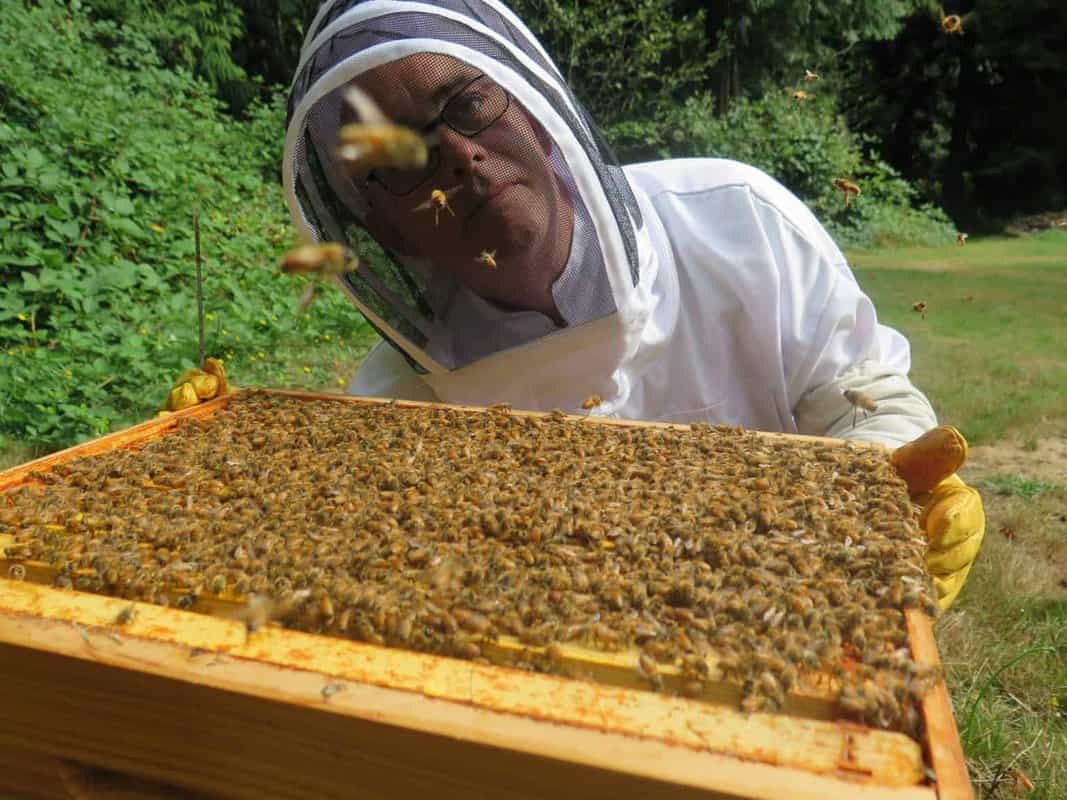Have you ever asked yourself, “Why do bees like me?” If so, you are not alone. Beekeeping has become increasingly popular in recent years, and many people are asking this same question. Beekeeping is a rewarding activity that allows you to interact with and nurture these important pollinators. In this article, we will explore the basics of beekeeping and learn why bees are so attracted to you. By understanding the basics of beekeeping and the needs of bees, you can ensure that your bees stay happy and healthy.
What Attracts Bees?
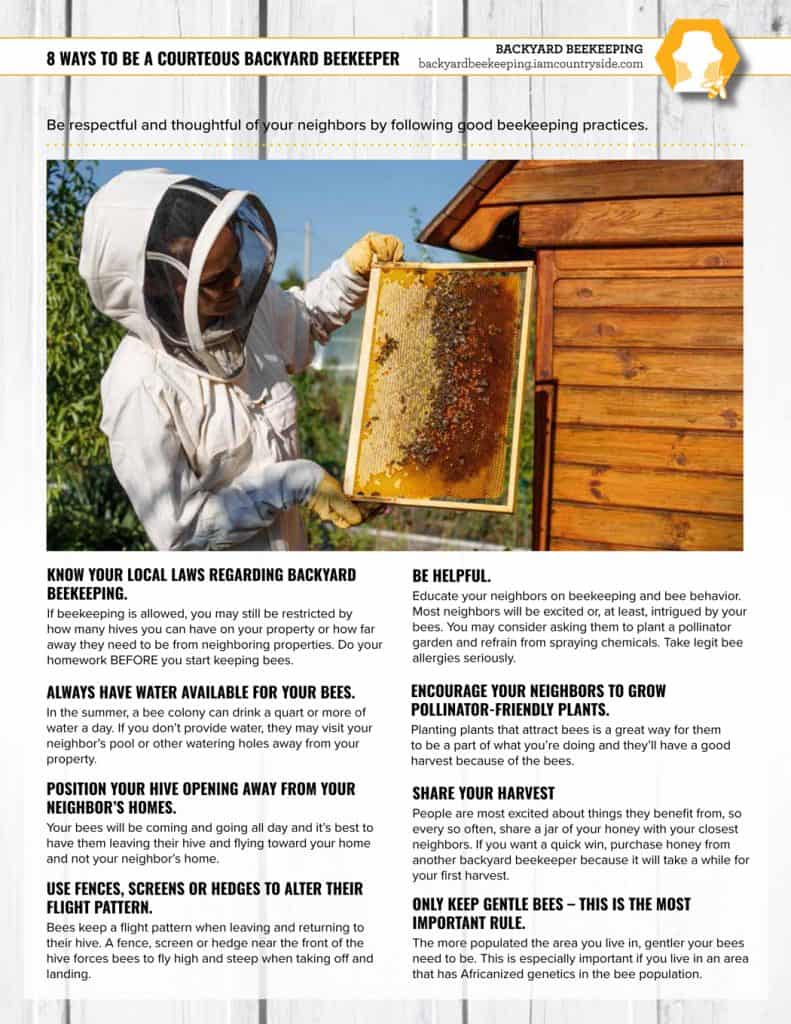
Nectar & Pollen
Bees are naturally attracted to flowers, as they need nectar and pollen to survive. They will fly from flower to flower, collecting the sweet nectar and storing it in their honeycomb. This is why it is important for beekeepers to create a bee-friendly environment in their apiary, with plenty of varied flowers and plants to supply the bees with plenty of nectar and pollen.
Aromas (Perfumes, Soaps, etc)
Bees are also attracted to certain aromas, such as perfumes, soaps, and fragrances. They have an excellent sense of smell and can detect these scents from quite a distance. By wearing or using scented items, you may be unintentionally attracting bees to you. So, if you want to keep bees away, it might be a good idea to avoid wearing perfumes or using scented soaps and lotions.
How to Attract More Bees
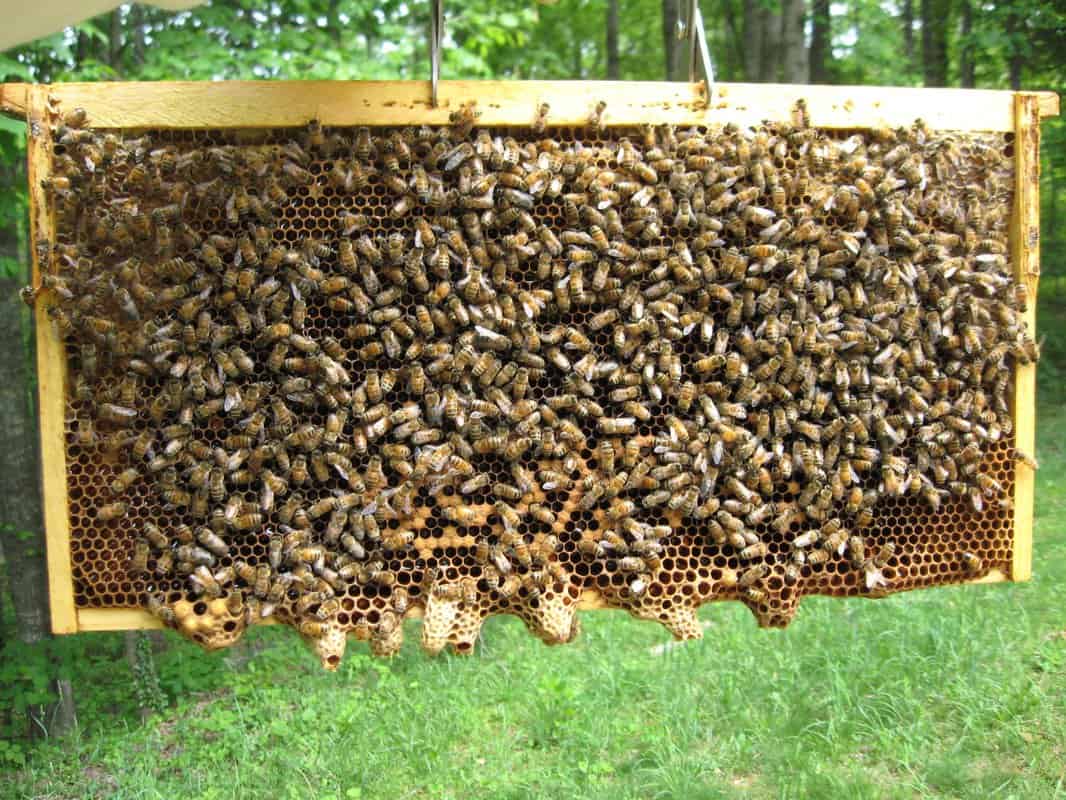
Plant Flowers
Flowers are essential for attracting bees to your garden. Planting a variety of flowers that bloom at different times throughout the season will give bees plenty of food sources. Plant flowers in clumps or patches in a sunny area, as they are more attractive to bees. Make sure to add some native plants to your garden too, as these are particularly attractive to bees.
Install Bee Houses
Bee houses provide a safe and secure home for native bees. These wooden structures are designed to be placed in sunny areas, and provide a warm, sheltered environment for bees to nest. Bee houses are also a great way to encourage bees to stay in your garden and visit your flowers more often.
Is It Safe to Be Around Bees?
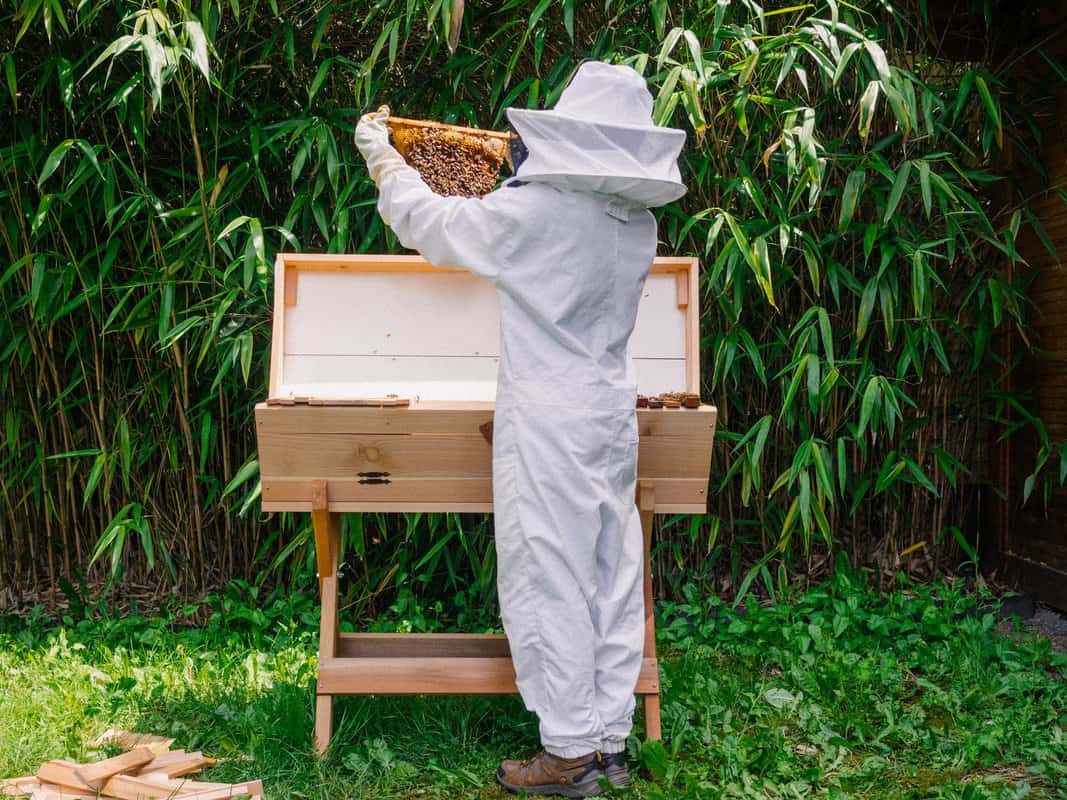
Understanding the basics of beekeeping is important to ensure the safety of both you and the bees. Why do bees follow me? Bees are attracted to sweet-smelling perfumes, bright colors, and movement. It is important to remember not to swat at them or make sudden movements that may startle them.
Safety protocols to follow when around bees include:
- Wear light-colored clothing, preferably white, to avoid attracting bees.
- Avoid wearing heavily scented perfumes or colognes.
- Avoid making sudden movements or swatting at bees.
- If a bee lands on your clothing, stay still until it flies away.
- If you are stung by a bee, stay calm and remove the stinger as soon as possible.
- If you are allergic to bees, carry an EpiPen with you at all times.
By following these safety protocols, you can ensure that you and the bees remain safe while you are beekeeping.
The Basics of Beekeeping
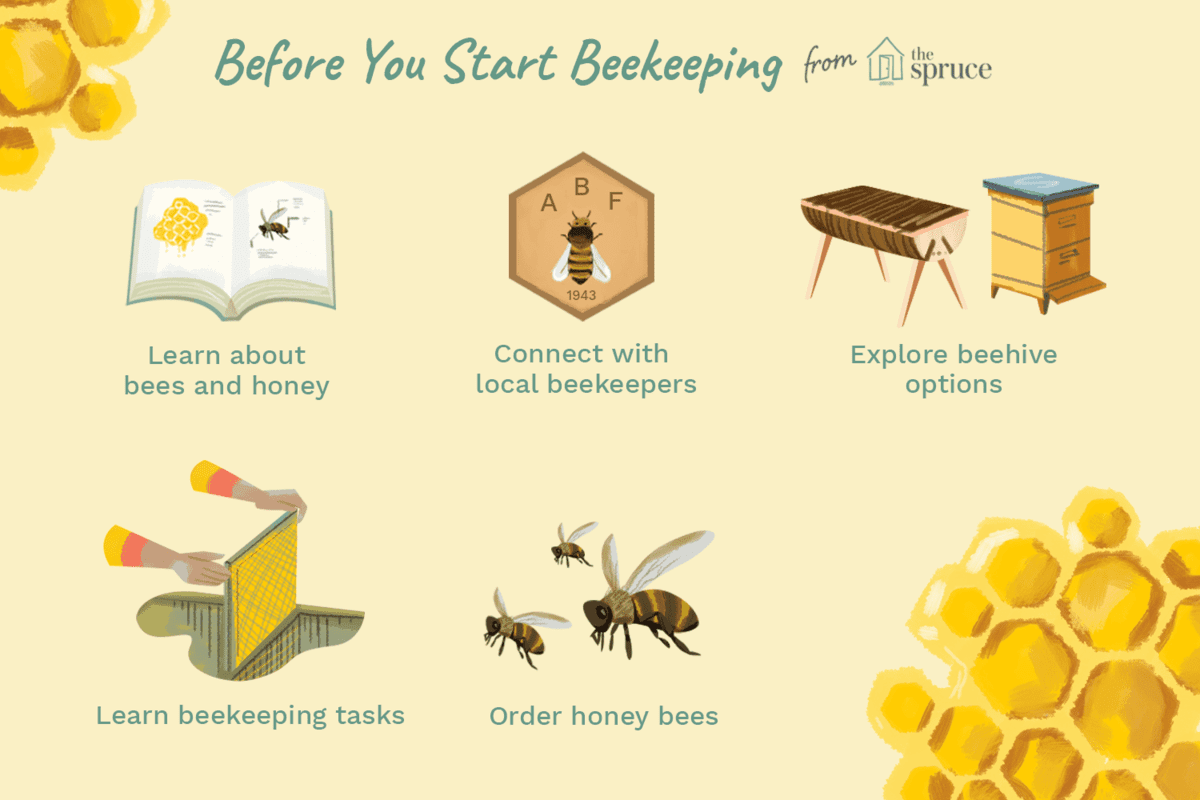
Beekeeping, also known as apiculture, is the practice of keeping bees in managed hives and colonies. It is an incredibly rewarding practice, as beekeepers get to see the amazing effects of their bee colonies and even benefit from the honey they produce. When done correctly, beekeeping can be a great way to get in touch with nature and form a unique relationship with bees.
Understanding Bee Behavior
Learning about the behavior of bees can be a great place to start for any aspiring beekeeper. Bees are social insects, living together in colonies of up to 20,000 individuals and working together for the benefit of the whole. They communicate with each other through a complex system of pheromones and signals, and it’s important for beekeepers to recognize and understand these signals in order to better interact with their bees. Understanding why bees follow you or why they tend to stay in one area of your hive can be incredibly helpful in managing your colonies.
Supplies Needed for Beekeeping
In addition to the knowledge of bee behavior and hive management, beekeepers will also need the right supplies to start and maintain their colonies. The most essential item is the beehive, which can be purchased or even built by the beekeeper. Other necessary supplies include protective gear, such as a beekeeper’s suit and veil, and tools such as a smoker and hive tool.
Basic Steps for Beekeeping
Once a beekeeper has all of the necessary supplies, the next step is to begin the process of setting up the hive. This includes finding an appropriate location for the hive, assembling the parts of the hive, and introducing the bees to the hive. After the hive is set up and the bees are settled in, beekeepers will need to monitor their colonies and take steps to ensure the health of the bees. This includes providing food, water, and protection from pests and disease.
Beekeeping can be a rewarding and enjoyable experience for beekeepers of all levels. With the right knowledge, supplies, and steps, beekeepers can create a thriving colony and form a bond with their bees. Being able to understand why bees love you and why they behave the way they do is an important step in becoming a successful beekeeper.
Benefits of Beekeeping
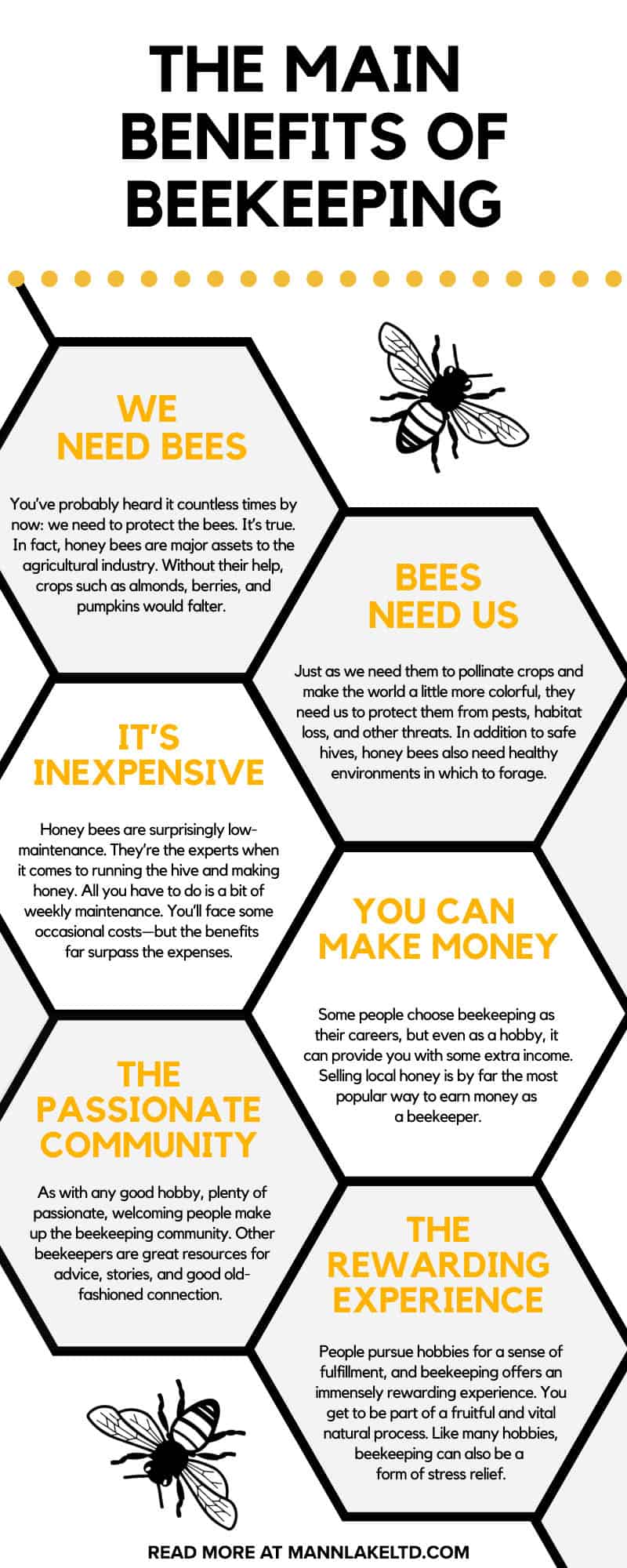
- Pollination: Beekeeping helps in the process of pollination, which is essential for the growth of many plants and trees. Pollination is one of the key ways bees help the environment.
- Honey Production: Bees produce sweet, delicious honey that can be used for a variety of purposes, from cooking to medicinal remedies.
- Sustainable Living: Beekeeping is an excellent way to promote sustainable living, as beekeepers can harvest honey without harming the bees or the environment.
- Healthy Ecosystem: Keeping bees helps to maintain a healthy ecosystem by providing food for other insects and animals, and they also help to keep the air clean by pollinating plants.
- Why Are Bees Attracted to Me: Bees are naturally attracted to humans because of the natural sweetness of our sweat and because of the pollen and nectar from flowers that we bring near them. Beekeepers can use certain techniques to attract and keep bees in their hives.
Dangers of Beekeeping
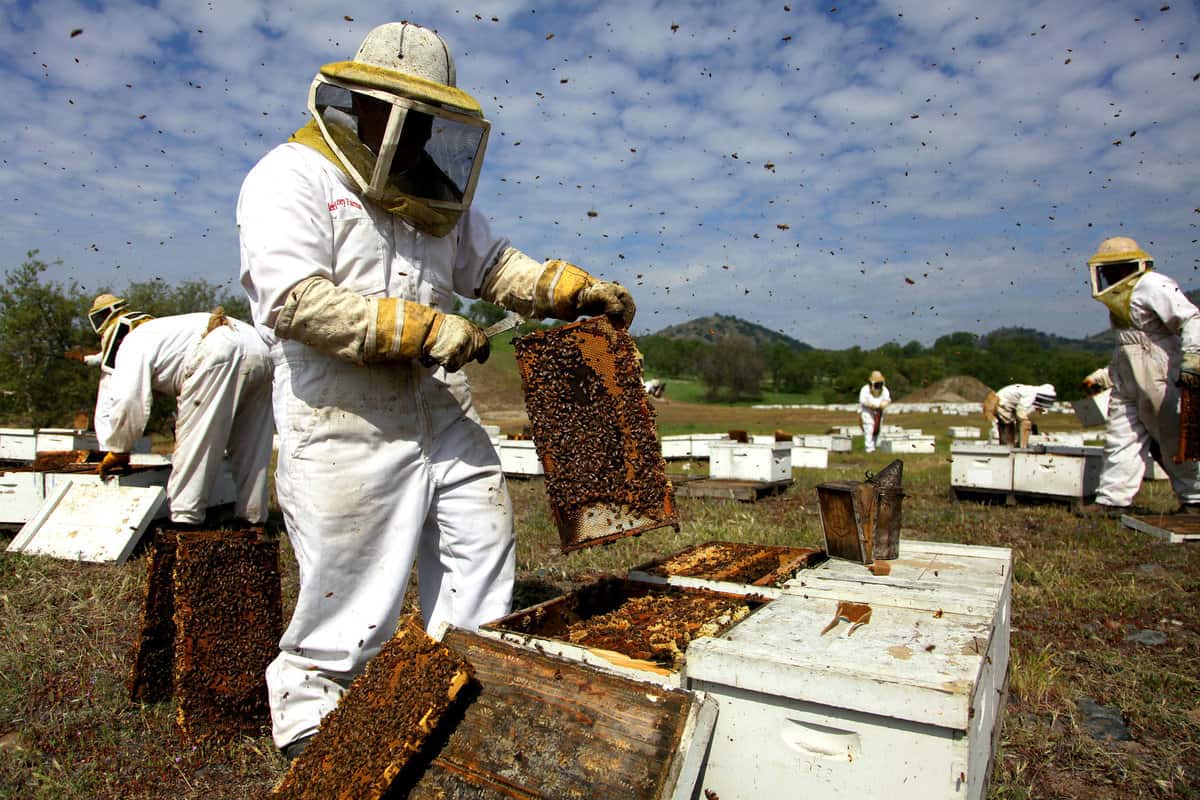
- Stings: Bee stings can cause anaphylaxis and other allergic reactions in some people. Therefore, it is important to use protective clothing and equipment when handling bees.
- Diseases: Beekeepers may be exposed to diseases that can be spread by bees, such as American Foulbrood and European Foulbrood.
- Pesticides: Pesticides used to control pests in crops can be harmful to bees if used incorrectly.
- Varroa Mites: Varroa mites are a major problem for beekeepers, as they can cause hive collapse if not managed properly.
- Hive Collapse: Hive collapse can occur when bees are exposed to stressors such as poor nutrition, pesticides, and diseases.
- Honey Toxicity: Eating large amounts of honey can cause health problems, so it is important to limit consumption.
How to Keep Bees Happy
- Provide a source of pollen and nectar: Bees rely on a steady source of nectar and pollen to survive. Planting flowers and flowering shrubs in your yard can help keep your bee population healthy and happy.
- Keep the hive clean: Keeping the hive clean is paramount for healthy beekeeping. Remove dead bees and debris and inspect the hive regularly.
- Check for diseases: Regularly check your bees for signs of disease. Early detection and treatment can help keep your hive healthy and happy.
- Provide shelter: Ensure that your hives are properly sheltered from wind, sun, and rain.
- Check the queen bee: Make sure the queen bee is healthy and producing enough eggs to keep the hive going.
- Create a bee-friendly environment: Avoid using pesticides and other chemicals that can be harmful to bees.
- Provide space for the bees to forage: Ensure that there is a sufficient area for your bees to forage for nectar and pollen.
Frequently Asked Questions
What Kind of Environment Do Bees Need to Be Happy?
Bees need a safe, secure environment to thrive and be happy. To keep bees happy, the hive must be sheltered from the wind and rain, and must have good ventilation. The hive should be placed in a sunny spot that is not too hot or cold. The area should also be free from pesticides, herbicides, and other toxic chemicals. Additionally, the hive should be placed in an area with a variety of flowers and other plants in bloom, so the bees have access to plenty of nectar and pollen.
What Kind of Food Should I Provide for Bees?
Bees need a variety of food sources, including nectar, pollen, and water. Nectar provides the bee colony with carbohydrates, while pollen provides proteins and lipids. You can provide bees with an artificial sugar syrup, but it is best to supplement it with natural sources such as flowers. Additionally, water is essential for bees, either from a birdbath, shallow dish, or dedicated bee waterer.
How Often Should I Inspect My Bee Hive?
- Monthly: Inspect the exterior of your hive for any damage or signs of pests. Also, check for any honey that may have leaked from the hive.
- Every 6 Weeks: Inspect the interior of your hive for signs of pests, disease, or queenlessness. Check the frames for eggs, larvae, and capped brood.
- Every 3 Months: Check the frames for honey and pollen stores, and assess whether the hive needs more space or honeybee colony splitting.
It is important to regularly inspect your bee hive to ensure the health and safety of your bee colony. During each inspection, look for any signs of diseases or pests, assess the amount of honey and pollen stored, and check the queen’s status. You should also monitor the hive’s needs, such as more space or the need for honeybee colony splitting.
How can I protect my bee hive from predators?
- Electric Fences – Installing electric fences around the beehive can help keep away predators such as bears, skunks and raccoons.
- Physical Barriers – Placing a physical barrier such as a wire mesh around the hive can also help keep predators away.
- Motion Detector Lights – Motion detector lights can be used to scare away predators.
- Insecticides – Insecticides can be used to target specific predators such as ants and wasps.
- Beef Netting – Beef netting can be used to create a physical barrier that will help keep predators such as bears and skunks away from the hive.
- Traps – Traps can be used to catch predators such as raccoons and skunks.
In addition to these measures, it is important to make sure that the bee hive is well-maintained and free of pests and diseases. This can be done by regularly inspecting the hive, cleaning it, and providing food and water to the bees.
What Safety Precautions Should I Take When Working With Bees?
- Wear protective clothing: Wear a beekeeping suit and veil to protect your skin and eyes. Make sure the suit and veil are made of a thick material that will not tear easily.
- Use a smoker: A smoker is a device used to blow smoke over the bees which calms them and helps keep them from stinging. Use a smoker when working with the bees to minimize the risk of getting stung.
- Be aware of your surroundings: Always be aware of your surroundings when working with bees. Make sure that the area you are working in is free from other animals that may disturb the bees. Also, make sure to keep the hive away from any sources of water that could attract predators.
- Be gentle and move slowly: When working with bees, it is important to be gentle and to move slowly. Moving too quickly or making loud noises can startle the bees and cause them to become agitated.
- Monitor the temperature: The temperature of the hive should be kept at a comfortable level for the bees. High temperatures can cause the bees to become agitated, so it is important to monitor the temperature and make sure it is not too hot.
- Check the hive regularly: It is important to check the hive regularly. Look for signs of disease or pests that could be affecting the bees. It is also important to check the hive for signs of honey production and to make sure the bees have enough food.
Conclusion
Beekeeping is an incredibly rewarding experience. With the right knowledge and the right attitude, you can create the perfect environment for bees that will keep them happy and healthy. Keeping bees is a great way to become a more responsible beekeeper, to help protect the bee population, and to provide yourself with a bounty of delicious honey.
